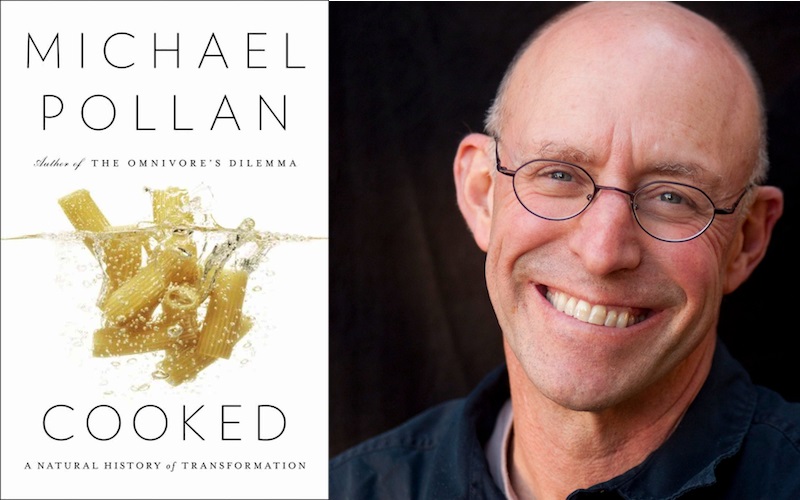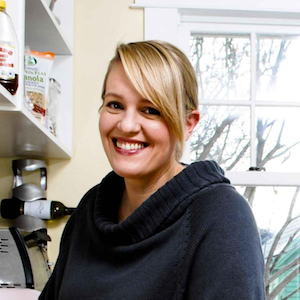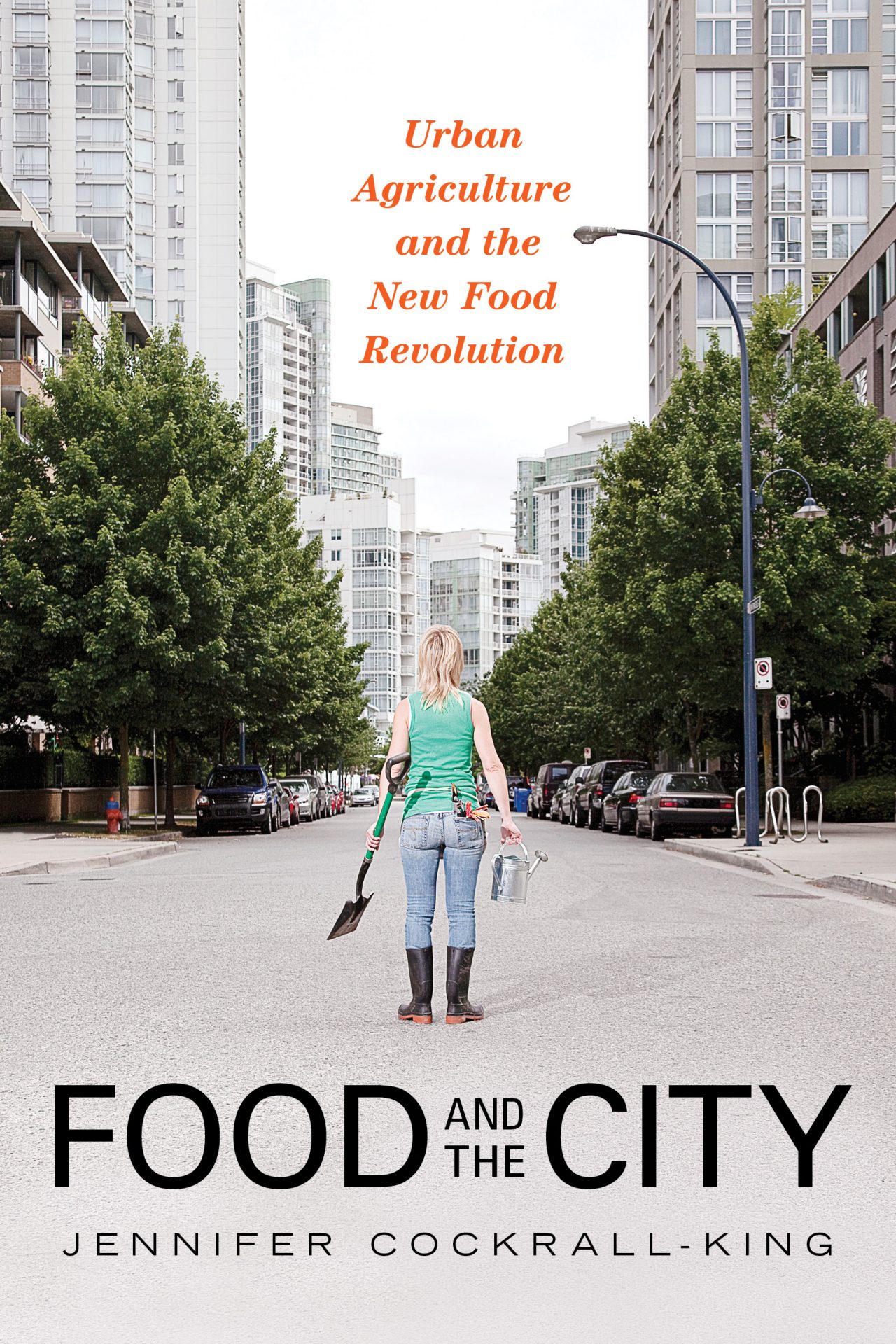‘Eat food. Not too much. Mostly plants’ wrote Michael Pollan two books ago in In Defense of Food. That book, which laid a sort of set of reasoned, evidence-based ground rules for healthy eating, was the follow-up to The Omnivore’s Dilemma, which continues to hold its place as the defining work of creative non-fiction for this foodie era. Omnivore’s Dilemma was a scary book, full of Big Corn and CAFOs, and contrasted ethical farmers like Joel Salatin and his chicken mobile against industrialized farming with its chemical inputs and drugged-up, nutritionally dubious outputs. Defense of Food, and its more prescriptive follow-up Food Rules, were written as codas to Dilemma. They were an answer to the question Pollan was inevitably asked: what should we eat? The trouble is that the answer can come across as not a lot of fun. Examine Pollan’s seven word mantra. The ‘eat food’ part is fine, but the rest of it brings to mind dinners consisting of a single leaf of kale, or something equally grim. It’s no wonder the editors of Eater.com have taken to citing Pollan’s name with the (grossly unfair, but snarkily amusing) prefix ‘food scold’.
The editors of Eater.com have evidently not read Cooked: A Natural History of Transformation because its actually quite funny and full of dry wit. True, Cooked starts out with lofty enough goals: its Pollan’s reasonable assertion that best thing for American families to do foodwise is to just get in the kitchen and cook something. When Good Food Revolution considers profiling a company, or admitting them into our Good Food Fighter program, one of the criteria we use is whether they promote the consumption of “real food”, and one of the ways we define “real food” is that it is prepared and presented by a “real person” and, pointedly, does not come from a box. So, no trouble there for this reader. Pollan, then, embarks on an examination of the history, science, cultural significance and practical application of four ways of “cooking”, each related to the four classical elements: Fire-Barbecue, Water-Braising, Air-Bread making, Earth-Fermenting.
The fun of the book is in its synthesis of Bill Bryson-style popular history and science (something Pollan mastered in his first big seller, The Botany of Desire) and George Plimpton-style of self-denigrating participatory journalism. We are led through Pollan’s attempts at cooking mastery, which invariably result in some small catastrophe before being resolved. And we are given glimpses into the world of the uncooked, as it were, with an amusing account of a Pollan family dinner prepared exclusively with items selected from a supermarket freezer nuked to edibility in his microwave, and a visit to a Wonderbread factory. We also get broad sweeps of evolutionary theory, Levi Straussian semiotics and practical tips about salting one’s meat before browning.
One of the reasons, I think, Michael Pollan is such an influential and popular food writer is that he isn’t. His beat was science, and it was his investigations into edible plants in Botany of Desire, which led to Omnivore’s Dilemma, articles on nutrition in the New York Times Magazine, hanging out with Alice Waters and ultimately this food scold rap. Why this particularly matters is that he applies scientific rigour to his investigations. It’s not enough to take someone’s word, he demands proof, and even when he thinks a theory is valid, he will equivocate and offer his reader evidence that it might not be. It’s also worth remembering that the not-so-edible plant in Botany of Desire was marijuana, and among the vignettes and stories in Cooked, my favourite might be ones he tells about alcohol. The man is forthright not only about his enjoyment of a good drink, but seems very much of the school of thought that links early agriculture, the very mother of civilization, to beer making. Yes, he acknowledges the terrible personal and social costs that can come with drinking, but he makes a compelling case that more good has come from the fermented grape and grain than bad in the crooked history of humanity. He also, very amusingly, debunks any health claims made by raw foodists and paleo-diet adherents. The point by point, evidence-based demolition that Pollan cooks of this nutritional quackery is worth the book’s cover price on its own.
It’s unlikely that Cooked in 2013, despite its subtitle, will have the transformative effect that Omnivore’s Dilemma had in 2006, but his readers have grown up. When Omnivore’s was published Toronto had three main farmers markets, now it has something like 30. The troubles, like obesity and industrial diseases, that Pollan addresses in both works are still with us, but the attitude, at least of the cognescenti, has become a little more relaxed and Cooked reflects this. While his first two treatments, Southern barbecue and braising, seem rooted in the food trends of five years ago, his last two, bread making and fermenting, which includes pickling, are perfectly representative of the foodie zeitgiest. And if Michael Pollan is, or even ever was, a ‘food scold’, then his scolding was never at his readership. It’s directed at the companies and food systems that rob us of the pleasures of the table. Michael Pollan and his books are really about a kind of informed hedonism and a curiosity about what makes the things we enjoy so good. I can’t think of anything more fun.
A note for Torontonians: a good way to get a copy of Cooked: A Natural History of Transformation is to buy a ticket to see him in conversation with Matt Galloway on the evening of Thursday, June 6, since The Cookbook Store will give you a copy with the price of admission. Visit The Cookbook Store’s website for more details.
 Malcolm Jolley is a founding editor of Good Food Revolution and Executive Director of Good Food Media, the company that publishes it. Follow him at twitter.com/malcolmjolley
Malcolm Jolley is a founding editor of Good Food Revolution and Executive Director of Good Food Media, the company that publishes it. Follow him at twitter.com/malcolmjolley








